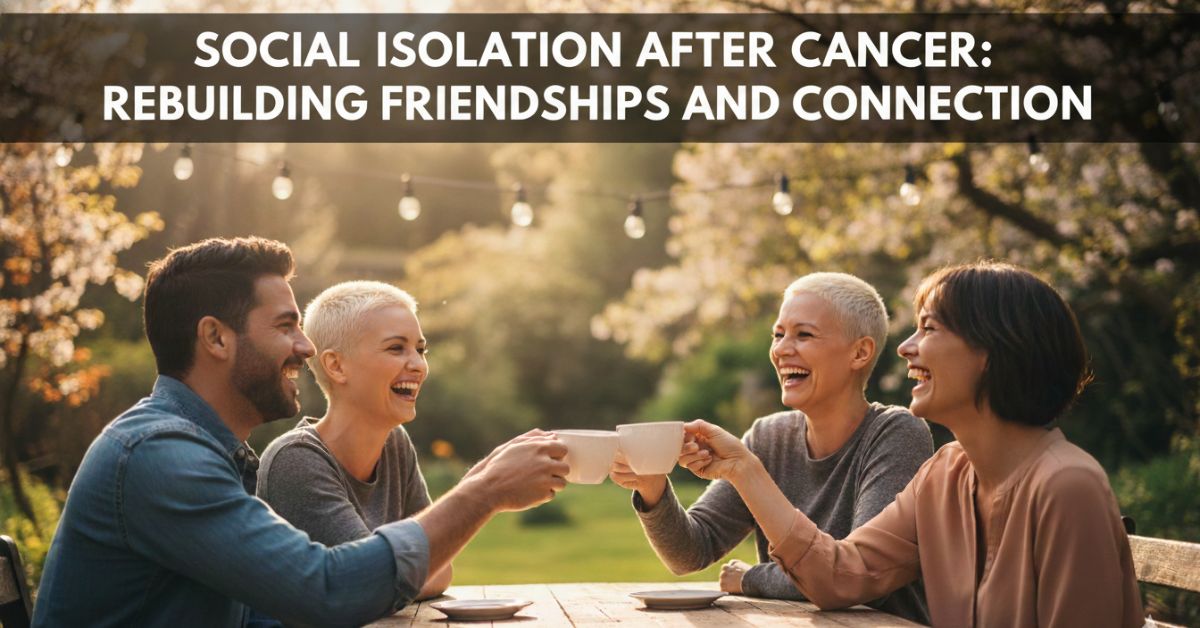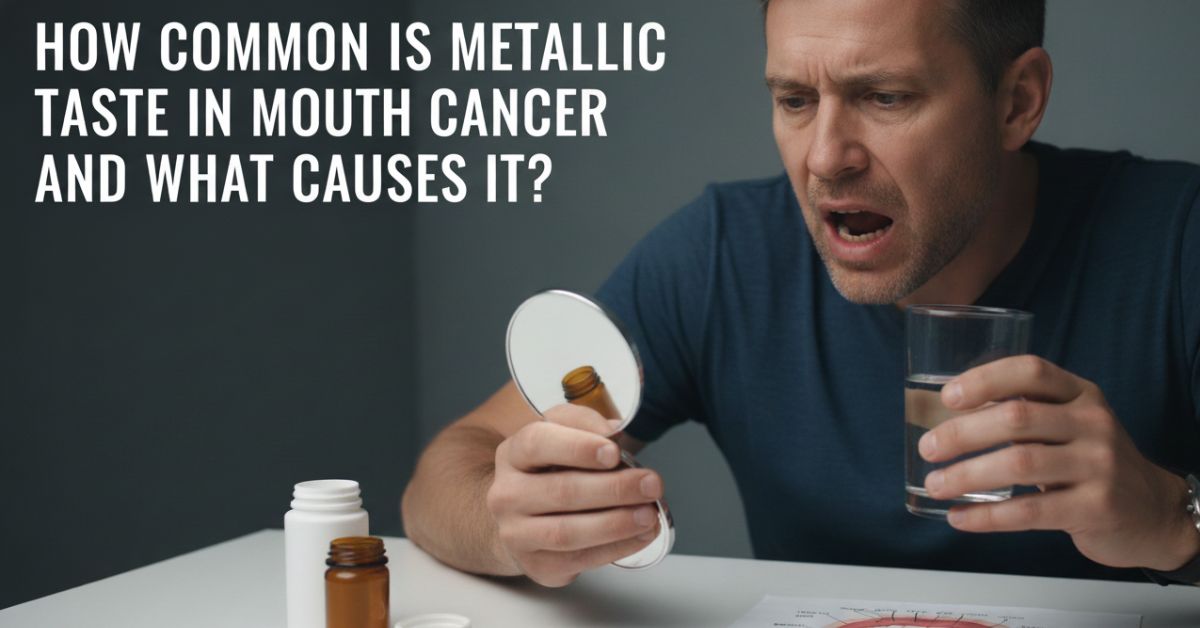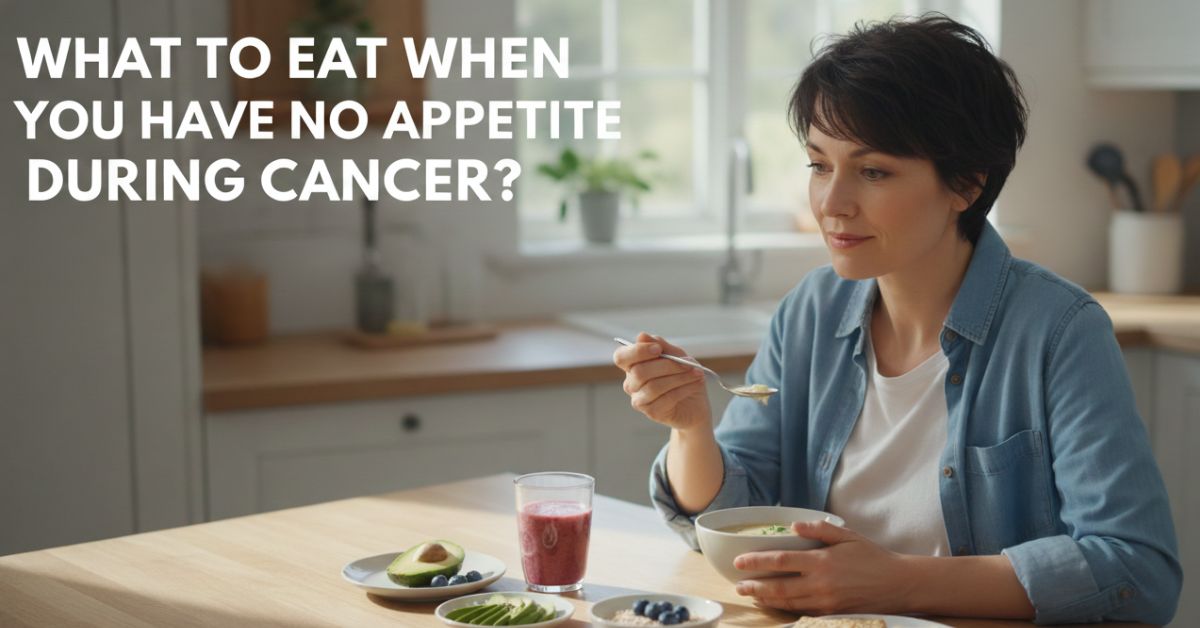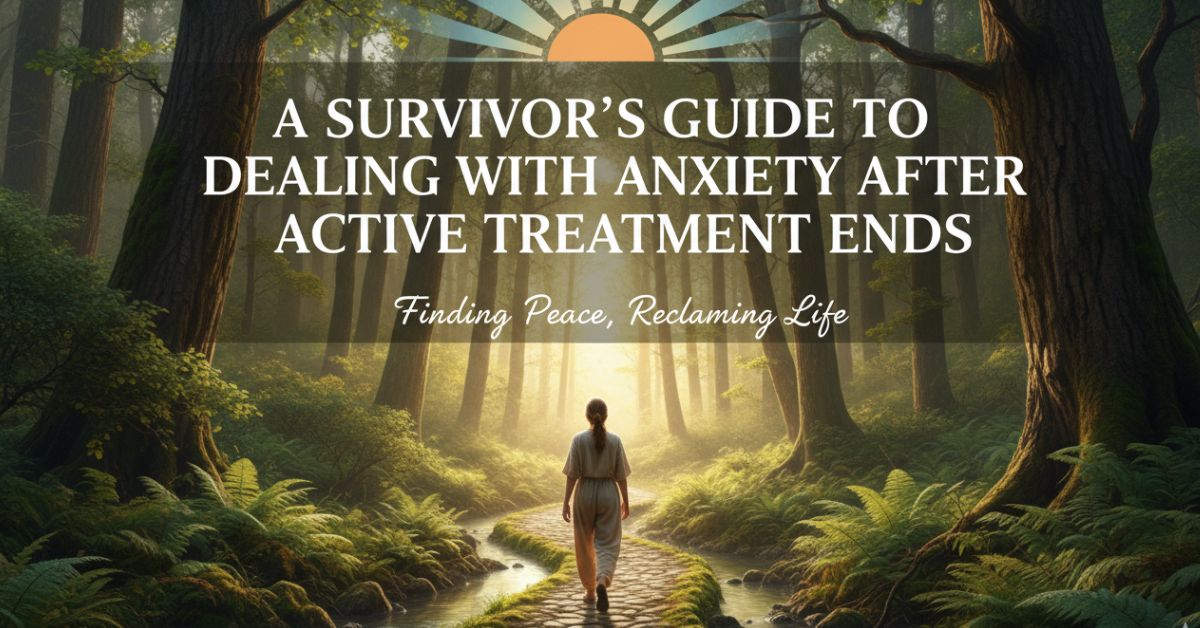Completing cancer treatment is a major milestone. It marks strength, patience, and courage. Yet, recovery does not end when treatment stops. The body still needs time to heal. One of the most important parts of recovery is rebuilding immune system after chemotherapy.
Chemotherapy and radiation target fast-growing cancer cells but can also damage healthy immune cells. This makes survivors more vulnerable to infections and fatigue. With the right care, however, the immune system can rebuild and protect the body again.
How Cancer Treatment Affects the Immune System
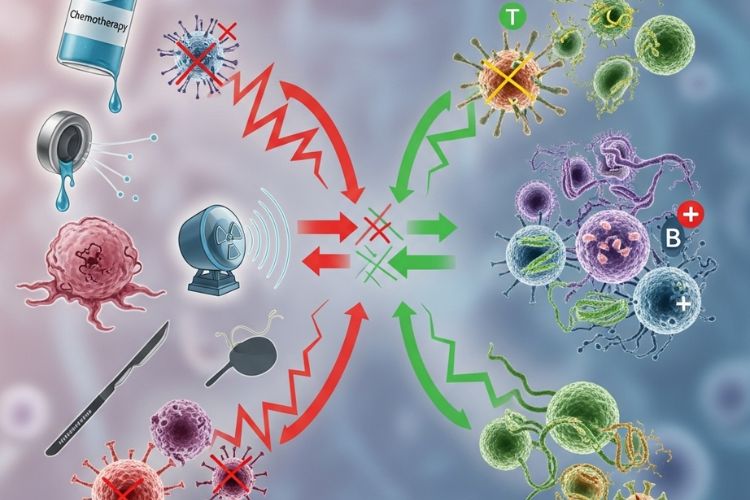
Cancer therapies work hard to destroy cancer cells, but they also affect bone marrow, where immune cells are made. When white blood cell counts drop, the body becomes less capable of fighting bacteria and viruses.
The immune system after chemo may remain weak for some time. It often takes weeks or months before normal immune activity returns. Recovery depends on factors such as age, overall health, and the type of treatment received.
You may wonder how long does it take for your immune system to recover after chemotherapy. The timeline varies. Some patients regain immune strength within a few weeks. Others may need several months of steady recovery and medical monitoring.
Even though this process takes time, there are many ways to support it through food, rest, movement, and stress control.
Rebuilding the immune system after chemotherapy
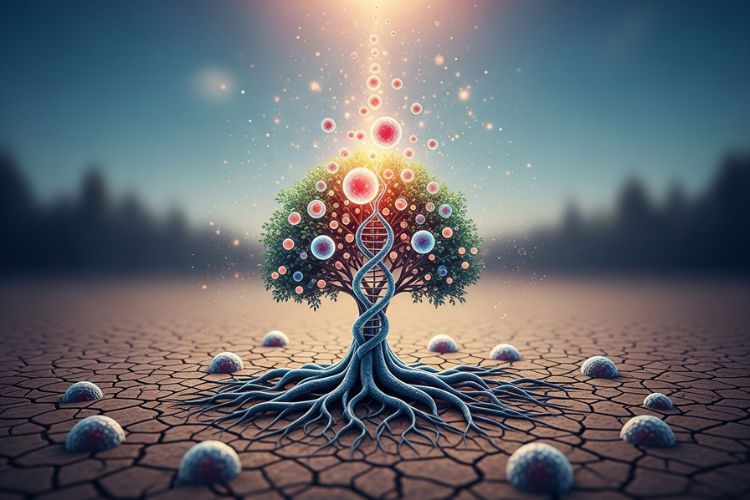
1. Nutrition and Immune Recovery
Food is one of the most effective tools for healing after chemotherapy. The immune system depends on steady nourishment to repair cells and tissues damaged during treatment.
- Eat foods that are simple, fresh, and full of nutrients.
- Include fruits and vegetables rich in vitamin C and antioxidants
- Choose lean proteins like chicken, fish, or legumes to rebuild tissues
- Add whole grains for long-lasting energy
- Use healthy fats from nuts, seeds, and olive oil to reduce inflammation
Avoid processed and sugary foods that slow healing. Stay hydrated by drinking water throughout the day. Drink plenty of water throughout the day to stay hydrated. When you don’t feel hungry, try soft foods like smoothies and soups. Following a meal plan for cancer patients can make healthy eating easier and ensure balanced nutrition during recovery.
2. How Rest and Sleep Support the Body’s Healing Process
Rest and sleep play a direct role in helping the body recover. During deep sleep, your body releases growth hormones that repair tissues, muscles, and organs damaged by treatment. The immune system also becomes more active, producing new white blood cells that fight infections and speed up healing.
For people recovering from chemotherapy, sleep helps restore energy levels and allows healthy cells to rebuild. It also reduces inflammation, balances stress hormones, and improves mood — all of which support faster recovery.
Keeping a regular sleep schedule, creating a calm bedtime routine, and limiting screen use before bed can make a big difference. If fatigue continues during the day, short naps can help. Quality sleep isn’t just rest, it’s one of the most powerful ways your body heals after chemotherapy.
3. Gentle Physical Activity
Exercise supports circulation, reduces stress, and helps the immune system work better. The goal is not to train hard but to stay gently active.
Start slowly. Begin with short walks around your home or block. Try stretching or yoga to improve flexibility and breathing. Increase duration as your energy improves.
Regular movement of the body allows you to balance hormones and supports boosting immune system after cancer. It also improves mood, which supports overall healing.
4. Hydration and Immune Support
Water plays a key role in healing. It helps transport nutrients, flush out toxins, and regulate temperature.
Stay Hydrated
- Drink water throughout the day instead of all at once
- Add lemon, cucumber, or fruit for flavor
- Include herbal teas or clear broths
- Limit caffeine and alcohol, which can cause dehydration
Hydration helps your immune cells function effectively and supports the recovery process.
5. Managing Stress and Emotional Well-Being

Chronic stress releases hormones that suppress immune function. Emotional health directly impacts physical recovery.
Ways to Manage Stress
- Practice deep breathing or mindfulness
- Spend time outdoors
- Write in a journal or listen to calming music
- Stay connected with loved ones
Professional support can make a difference. Many survivors benefit from Post cancer treatment coaching, which combines lifestyle, nutrition, and emotional guidance to improve recovery outcomes.
6. Preventing Infections During Recovery
While the immune system rebuilds, infections can be harder to fight. Preventive care is essential.
- Wash your hands regularly
- Avoid close contact with people who are sick
- Keep living areas clean and well-ventilated
- Eat only properly cooked food
- Clean cuts or scrapes immediately
Talk to your doctor about vaccinations or preventive medications that might be appropriate during recovery. Keeping infections away gives your immune system time to strengthen naturally.
7. Working With Your Healthcare Team
Recovery is smoother when you stay connected to your care team. Regular checkups allow doctors to monitor your immune levels and overall progress.
Discuss any symptoms such as unusual fatigue, fever, or frequent infections. Your doctor may suggest supplements, medications, or lifestyle changes that support immune function.
An open line of communication guarantees you get the right help at the right time. Your team can also connect you with nutritionists or physical therapists to guide your recovery.
8. Emotional Healing and Long-Term Wellness
Physical healing is only part of recovery. Emotional health is equally important. Many survivors feel uncertainty after treatment ends. It takes time to regain confidence in your body.
Connect with others who share similar experiences. Join a survivor group or community program. Focus on small goals each week, and recognize progress when it happens.
Emotional balance supports your body’s physical recovery and plays a strong role in boosting immune system after cancer.
9. Building Long-Term Habits

Recovery continues beyond the first few months. The habits you build now will protect your health for years to come.
Keep eating nutritious meals and drinking plenty of water. Make rest and gentle movement part of your daily life. Maintain supportive relationships and be consistent with your medical follow-ups. These steady habits help the immune system after chemo regain resilience and strength.
Conclusion
Healing after cancer takes time and patience. The journey begins with rebuilding immune system after chemotherapy through balanced food, good sleep, light movement, and emotional care.
Every small step helps your body regain strength. Over time, these healthy habits rebuild immunity and energy. With consistent care and medical guidance, you can restore balance and move forward with confidence in your recovery.
For trusted guidance and real survivor support, iSurviveCancer offers resources, expert advice, and community programs to help you rebuild your health and confidence after treatment.
FAQs
How much time does it take for the immune system to recover from chemotherapy?
Recovery can take weeks to several months, depending on your treatment, age, and overall health.
What foods help the immune system recover?
Eat fruits, vegetables, lean proteins, whole grains, and healthy fats. Avoid processed or sugary foods.
Can I exercise after chemotherapy?
Yes, gentle activity like walking or yoga is safe once your doctor approves it.
How can I avoid infections while recovering?
Wash your hands often, stay away from sick people, and eat only cooked foods.
Why is emotional health important during recovery?
Managing stress and staying emotionally balanced helps your immune system heal faster.


